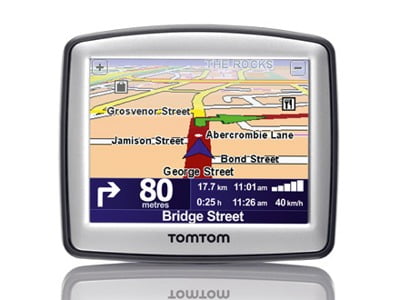In today’s age of rapid technological advancement, the value of having a reliable GPS in your vehicle cannot be overstated. Just as one might navigate the vast world of online gaming to find the best deals, like the enticing Richard Casino bonus, selecting the right GPS is crucial.
It’s not just about getting from Point A to Point B anymore. The right GPS can transform your driving experience, offering seamless navigation through unfamiliar terrain, suggesting alternate routes during heavy traffic, and even highlighting local points of interest.
Why Every Driver Should Consider a GPS:
- Simplified Navigation: With a GPS, gone are the days of juggling paper maps or relying solely on memory. The device offers turn-by-turn directions, ensuring that you never miss an exit or take a wrong turn.
- Traffic Updates: Modern GPS devices can provide real-time traffic alerts, helping you avoid congestion or roadblocks, thus saving time.
- Exploration: Whether you’re on vacation or exploring your own city, a GPS can highlight points of interest, from historical landmarks to the best local dining.
Factors to Consider When Selecting a Car GPS:
- Software: Many GPS systems feature Navitel software. It’s user-friendly and offers the advantage of free map updates. It’s always a boon to have updated maps at your fingertips without additional costs.
- Size: The size of the device is crucial. Do you prefer a compact 5-inch model or a larger 8-inch one? This decision primarily depends on how much dashboard space you have and your visual comfort.
- Connectivity: Not all GPS devices are made equal. While most work offline, advanced models come with Wi-Fi capabilities or SIM card slots. These models fetch real-time data about traffic and accidents, making them indispensable for professionals like couriers or taxi drivers who rely on swift navigation.
- Hardware Specifications: Look under the hood. While many GPS models have comparable specs in terms of RAM, storage, and chipset, if you’re someone who loves to travel extensively, it might be worth investing in a device with more storage or the option to expand memory.
- Battery Life: A pivotal factor. If you’re the kind who takes the GPS device on hikes or bike rides, you’d want something that doesn’t die out in a few hours.
- Map Updates: It’s essential to have a device that offers frequent and easy map updates. Roads change, new establishments pop up, and having the latest map data ensures your device remains a reliable navigator.
- Durability: It’s an often-overlooked factor, but consider where you leave your GPS. If it’s in the car, can it withstand the winter’s cold or summer’s heat? The more durable, the longer it’s likely to last.
- Design and Ergonomics: A device’s design should be both aesthetically pleasing and functional. You’ll want buttons and features easily accessible, especially when you’re driving and need to make quick adjustments.
Final Tips for Selection
Your ideal GPS is out there, but it requires a bit of research and introspection. Understand what you’re primarily city driving and require traffic updates, prioritize connectivity. If you’re an adventurer driving through diverse terrains, you might want a robust model with extensive map data and durable build quality.
Budget: Set a budget range. Like any tech device, GPS systems have a wide price range, from basic models to high-end ones with an array of features. Determine what you’re willing to spend, and then find the best device within that range.
User Reviews: Before making a purchase, it’s always wise to read reviews from other users. These reviews can offer insights into the device’s reliability, the accuracy of its navigation, and its real-world performance.
Brand Reputation: Stick to recognized brands in the GPS industry. They’re more likely to provide regular updates, have better customer service, and offer a more polished user experience.
Compatibility: Ensure the device can easily integrate with other tech you own, whether it’s your smartphone, car’s audio system, or even smart home devices.
Personal Experience: If possible, test drive a device before purchase. Visit a retail store, get a hands-on feel, understand the interface, and visualize how it would fit and function in your vehicle.
Conclusion
Selecting the perfect GPS for your car is a blend of understanding your personal needs, setting a budget, and keeping an eye out for the most valuable features for your lifestyle. With the right device, not only will you find your way seamlessly, but your journeys will also become more informed, enjoyable, and safe. Always remember, the right GPS is more than just a tool; it’s a companion for the road ahead.




